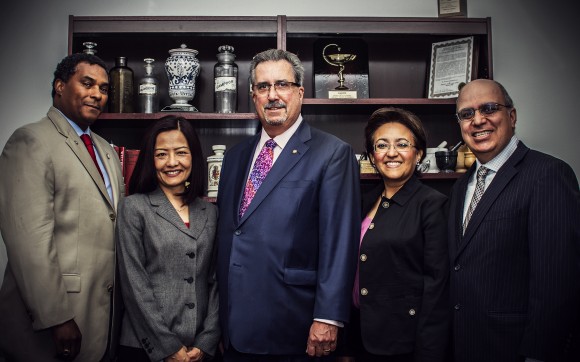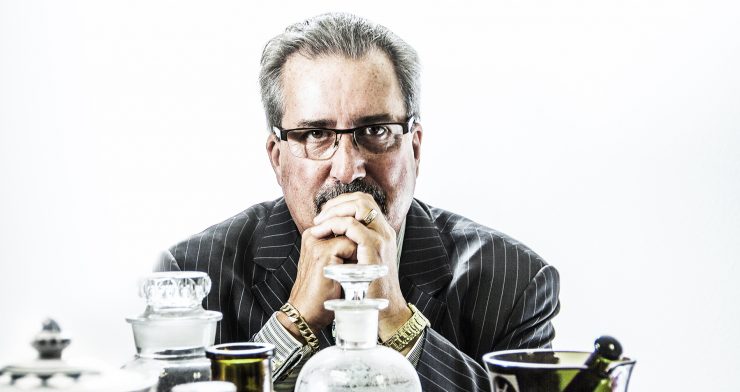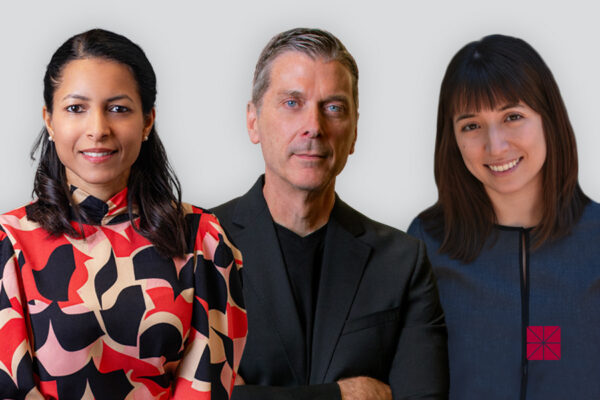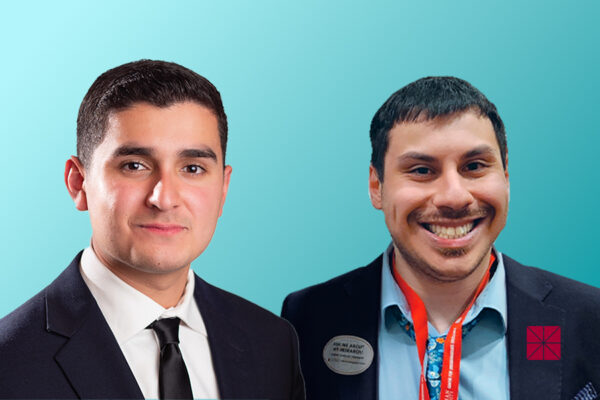Warfarin is a substance that wasn’t quite sure what it wanted to be when it grew up. At birth, its purpose
was killing rats, and by all accounts it was effective. But now, 65 years later, it’s a drug refined for human use — widely prescribed because it’s really good at saving people’s lives, which it does by thinning the blood, preventing heart attacks, strokes and
blood clots.
From efficient poison to trusted remedy? That’s a journey warfarin couldn’t have made without lots of specialized help. It takes skilled professionals using advanced tools to get drugs and their dosing just right these days. Ron Jordan and his colleagues can’t wait to start preparing the next generation of those professionals. Jordan, R.Ph., FAPh.A, is the founding dean of the new Chapman University School of Pharmacy (CUSP), which plans to welcome students to the professional portion of its program in 2015, pending WASC and ACPE accreditation approval. It will be the first such school in Orange County.
When that first class of 70 or so pharmacy students completes studies at Chapman’s new Health Sciences Campus in Irvine, those pharmacists will enter a fast-evolving healthcare arena. In fact, there may never have been a more exciting time to take on the role of pharmacy professional, Jordan said.
“As the most frequently encountered health care professionals, we have a great opportunity to influence behavior and help people manage their care,” said Jordan, who led the completion of a $75 million research and teaching facility when he was the dean of the College of Pharmacy at the University of Rhode Island.
“I also believe that there are still too many errors in healthcare delivery and that pharmacists are positioned to lead efforts preventing errors.”
The influence of pharmacists on care is only going to grow, notes Lawrence Brown, professor of pharmacoeconomics and health policy at CUSP. Brown, Pharm.D., Ph.D., FAPh.A, points to warfarin as an example of pharmacists’ critical role in this new healthcare dynamic.
As professionals, Chapman’s Doctor of Pharmacy graduates will be seeing patients who arrive with a portfolio of data on their own genetic makeup. Within the next few years, the testing that yields such data will probably cost just a few hundred dollars, or maybe even less than $100, said Brown, who is also associate dean of student and academic affairs at CUSP.
“We know that a drug like warfarin has a different effect on different people, depending on whether they’re a slow or fast metabolizer,” he said. “One patient may need a 15 milligram dose, another maybe just 5 milligrams.”
Get it wrong and the drug might be ineffective — or even harmful. But with specific genetic markers, a health professional can dose more confidently from the start.
“Not only is that great for the patient, but it creates a more efficient and cost- effective healthcare system,” Brown said.
Chapman will prepare students to thrive in such a system, which Brown says also will emphasize collaborative care, as more pharmacists work alongside other specialists on healthcare teams.
“Pharmacists who want more adven- turous careers will have those opportunities,” said Keykavous Parang, Pharm.D., Ph.D., professor and associate dean of research, graduate studies and global affairs at CUSP. “They’ll be empowered to impact care directly, in hospital and group practice settings.”
The process of creating a school from scratch invigorates Jordan and his faculty. Already they are developing strong ties to professional organizations, as evidenced by the new Dean’s Professional Advisory Group, which features executives from major employers of pharmacists in Orange County.
“Founding members will have key roles in strategic planning and in advising our faculty, staff and leadership,” Jordan said.
In their day-to-day work, the CUSP faculty and staff leadership team is taking on a number of challenges. During a recent push to meet an accreditation deadline, everyone contributed in critical ways.
“We’ve hired great people,” Jordan said.
Indeed, the credentials are impressive. Brown recently was elected the next president of the American Pharmacists Association — “a huge honor in our profession,” Jordan noted. Meanwhile, Parang, who was a colleague of Jordan at the University of Rhode Island, is a widely published medicinal chemist with an international reputation for drug design and delivery.
Nancy Alvarez, PharmD, BCPS, FAPhA, is the school’s assistant dean for experiential education and continuing professional development, while Siu-Fun Wong, PharmD, FASHP, FCSHP, is professor of oncology and associate dean of assessment and scholarship.
Alvarez has been on board for just a few months but already senses an entrepreneurial spirit within the group.
“Healthcare itself is changing, and to be accountable for the change they want to see in practice, pharmacists need to have a bit of that spirit, and as educators so do we,” she said.
As an oncology expert, Wong is a powerful advocate for a team approach to care. She also arrives with extensive experience conducting regional, national and international research — a source of emphasis at CUSP, Jordan said.
“I want to make sure we have a solid research base, to service the pharmaceutical, biotech and medical device innovation all around us in Orange County,” he said.
The Irvine campus is at the epicenter of such activity. Chapman is preparing those facilities for Department of Physical Therapy students in 2014 and the formal launch of the College of Pharmacy in 2015. Chapman’s new Physician Assistant Studies program will also be housed there. Among other things, the facility will feature research and teaching labs as well as high-tech classrooms that support active learning.

“Most of the curriculum won’t involve standard lectures at all,” Jordan said. “We’ll be working with facilitated teamwork and casework scenarios.”
The school will nudge students onto the path of collaboration by linking to other disciplines at Chapman, including biology, chemistry and film.
Film?
“I’ve long had a desire to get a screenplay or TV show developed with a pharmacist as a central character,” Brown said. “Consumers have a perception of the pharmacist as someone who only dispenses medications, and I think that would change if they saw a more interesting role in a movie. I’m hoping someone from the film school will take up the challenge.” As the Chapman team reaches across disciplines and readies facilities and curriculum, the challenges are just beginning. But the dean’s excitement is obvious when he talks about preparing students for the opportunities that await.
“We’ll be preparing them for change, but also to be change agents,” he said.
“Delivering something of value to society is at that foundation of pharmacy. And all of us here realize that we have our own chance to make a real difference.”





There are many pharmacy schools in CA. Why do we need another one?